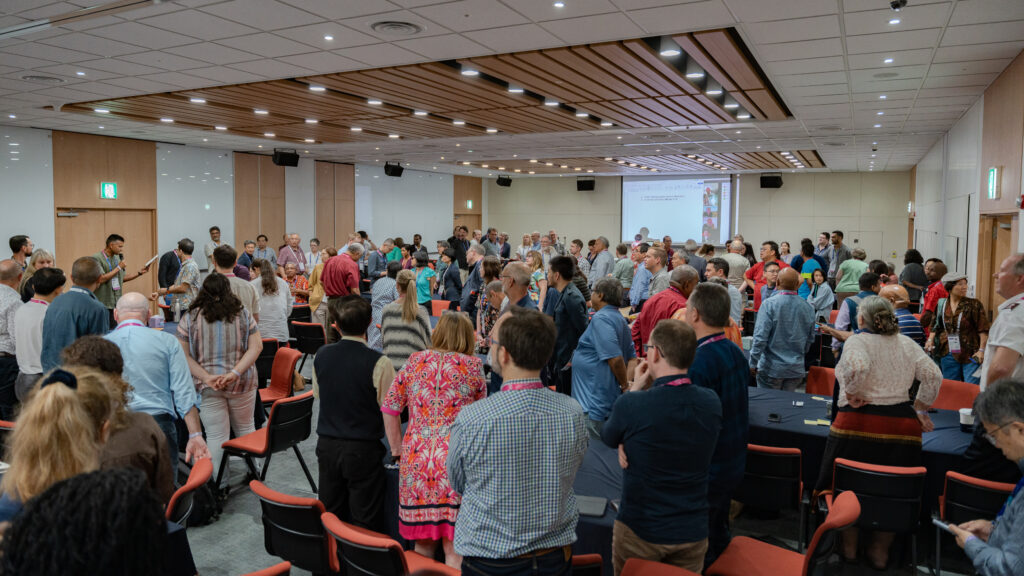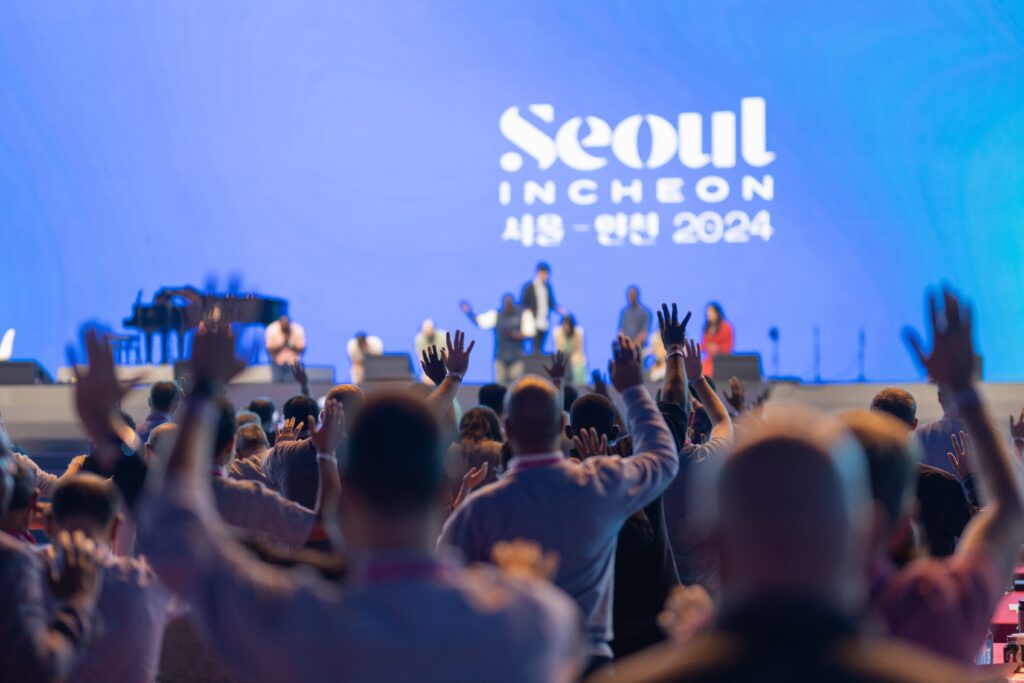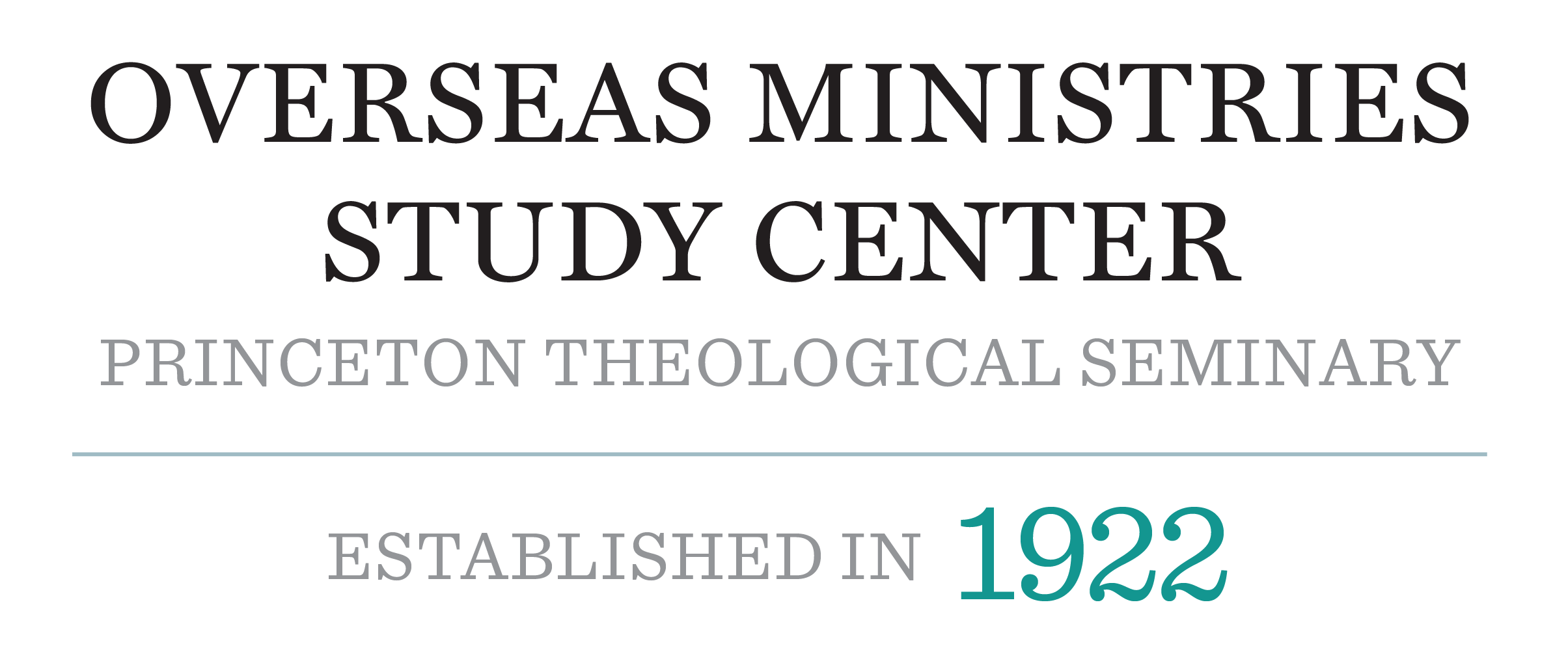By Marcos Amado
 Marcos Amado is a Brazilian pastor with over 23 years of cross-cultural experience. His missionary journey began in 1981 with Operation Mobilization aboard the Doulos ship. He spent eight years in North Africa working among Muslims and later earned a degree in Missiology in the UK. He became International Director of PM International and co-founded the Ibero-American Institute of Cross-Cultural Studies in Spain. In 2004, he earned a master’s in Missiology focusing on Islamic Studies. Currently, he is a missionary with Sepal, director of the Martureo Missiological Reflection Center, and a professor in São Paulo. Marcos is an OMSC Scholar this academic year.
Marcos Amado is a Brazilian pastor with over 23 years of cross-cultural experience. His missionary journey began in 1981 with Operation Mobilization aboard the Doulos ship. He spent eight years in North Africa working among Muslims and later earned a degree in Missiology in the UK. He became International Director of PM International and co-founded the Ibero-American Institute of Cross-Cultural Studies in Spain. In 2004, he earned a master’s in Missiology focusing on Islamic Studies. Currently, he is a missionary with Sepal, director of the Martureo Missiological Reflection Center, and a professor in São Paulo. Marcos is an OMSC Scholar this academic year.
The Lausanne Movement has played a significant role in some sectors of world evangelicalism over the past five decades. One of the main reasons for this is that, in the late 19th and early 20th centuries, there were differences between Protestant denominations about the correct biblical definition of ” mission. ” Some understood that biblically speaking, mission referred exclusively to evangelization and the establishment of new churches throughout the world. Others argued that, given the paradigm shifts the world was experiencing, it was important to emphasize social issues, fighting against disparities and injustices in different spheres of society. In response to this dichotomy, another movement emerged around the 1950s with the aim of reaffirming that social responsibility is part of the Christian calling, without renouncing the proclamation of the Gospel. In this context, under the leadership of evangelist Billy Graham, the Lausanne Movement was born, and its first Congress was held in the city of Lausanne, Switzerland, in 1974.

Under the influence of important theologians such as John Stott and René Padilla, this first Congress resulted in the Lausanne Covenant, a fundamental document for evangelical missionary theology, which influenced generations of Christians. This passage contributed to a more comprehensive understanding of the mission, Integral Mission. Living the Gospel by caring for those in need without losing fidelity to historic Protestant beliefs or neglecting evangelistic zeal was essential. Although this approach did not eliminate the tension between different missionary focuses, it contributed to a greater theological legitimacy of the Integral Mission. Given the great polarizations within the evangelical world in recent decades, there was great expectation regarding the fourth Lausanne Congress, held from September 22 to 28 of this year, in the city of Seoul. Months before, Lausanne released a document of more than 500 pages entitled The Status of the Great Commission, which served as a preamble to Congress. This document, in addition to statistics, included reflections on what Lausanne called “The 25 Gaps in Fulfilling the Great Commission.”
Under the motto “Let the church declare and display Christ together!” after long and arduous years of preparation, the opening night finally arrived. It isn’t easy to describe the visual and emotional impact of bringing together five thousand Christians from over 200 countries in a single location, with great denominational and theological diversity, to discern the direction of global missiology for the coming years. Never in the history of Christianity has an event that represents the reality of global Christianity so well.

Inside the hall, the aesthetics and sound were impressive. Using cutting-edge technology, simultaneous translation was provided daily in six or seven different languages. The worship leaders and their bands were of the highest quality, dramatizations occurred at various times, and the program went smoothly according to plan. In the mornings and evenings, the program revolved around lectures by speakers from Asia, Europe, the Americas, and Africa, with a good balance between speakers from the global north and south. In the afternoon, the five thousand participants were split into 25 groups. They spent two hours discussing gaps in fulfilling the Great Commission, including secularism, urban missions, and artificial intelligence. In parallel, unplanned meetings between representatives of different organizations have created opportunities for new friendships and partnerships, transforming the event into a huge networking event.
However, only some things were perfect. On the first night, it was announced that The Seoul Statement, a document of more than 30 pages, was ready and available on the website. Unlike previous conferences, in which the documents were at least partly the result of discussions held during the week, the Seoul Declaration had been gradually developed over the years by a group of theologians convened by Lausanne. The early release of the declaration caused some participants to feel uneasy, as the document was trying to assert positions that some understood as more traditional without considering the complexities of historical and cultural contexts. The theme of Proclamation vs. Integral Mission, a recurring theme since 1974, once again took center stage. On Tuesday night, the second day of the conference, theologian Ruth Padilla gave a presentation based on the book of Micah, in which she highlighted the need for Christians to be concerned about injustices, social disparities, slavery, and oppression that occur in different parts of the world. In her speech, she briefly mentioned the situation in Gaza and criticized certain dispensationalist theologies, which, according to her, contributed to inciting and justifying the unjustifiable in the region.

At the time of her speech, the audience did not appear to react negatively. However, two days later, all five thousand congress attendees received an email from Lausanne leadership offering an apology for a presentation that had criticized dispensationalism and failed to express equivalent empathy for the suffering of the Israeli people, as well as failing to address other violent conflicts in the world adequately. The statement offered,
[…] an apology for a presentation this week which singled out ‘dispensational eschatology’ in a critical tone implying that it contributed to violence and injustice and which failed to note that many theologies have been misused and misapplied as justifications for violence. That same presentation referred to the suffering of the Palestinian people but did not express comparable empathy for the suffering of the Israeli people nor adequately express concern for many other peoples and nations of the world that are currently in the throes of violent conflict. We have become aware of significant pain and offense experienced at this Congress from those in dispensational theological contexts, those who are Jews, and those engaged in ministries to Jews and in Israel.
This statement drew even more attention to the incident, causing many participants to react strongly. Arab Christians present were emotionally shaken and expressed outrage. The pressure was so great that days later, the Lausanne leadership sent another email apologizing and including a written response from Ruth Padilla. This second statement helped to calm, at least in part, the discomfort caused.
In addition to this episode, the Seoul Statement brought up another controversial point when dealing with the Integral Mission in chapter 5. The document made (or gave the impression of making) a connection between Integral Mission and reports of financial mismanagement, sexual misconduct, abuse of power, and weak spirituality in several churches and evangelical leaders around the world. The document laments such failures and emphasizes the need for grace and continuation of the Gospel to produce holiness among the leaders of Christians.

On the other hand, although there were criticisms regarding this approach, the document also reaffirmed aspects historically linked to the Integral Mission, encouraging Christians to get involved with social issues and fight against injustices and inequalities. This indicates that Lausanne is in marked indecision, receiving pressure from different groups with varied biblical theological views. One reflection of this was the daily presence of small groups of Korean Christians peacefully protesting outside the event, criticizing what they considered liberal positions on the part of the movement.
Another concern expressed by some participants was the impression that too much focus was placed on achieving goals in statistically controlling outreach to unevangelized people groups and the recurrent appeal that “the gaps” still need to be filled for the full accomplishment of the Great Commission. The use of technology and the establishment of clear goals for the mission were also highlighted, which made some participants wonder whether the missionary movement was being influenced by a more entrepreneurial mentality (some call it managerial missiology) to the detriment of a more loving, human, and relational approach.
Despite such criticism and questioning, it is still too early to know the real impact of Lausanne 4. Both the positive and negative aspects will influence global missionary reflection and practice in the coming years. The enormous effort made by the organizers and participants and the significant financial and human investment involved cannot be denied. May God allow the negative aspects to be overcome and may Lausanne 4 become a landmark in the history of world Christianity, contributing to Christians being “witnesses to the Lord Jesus and to all his teaching throughout the world and in every sphere of society” (Cape Town Commitment ).




